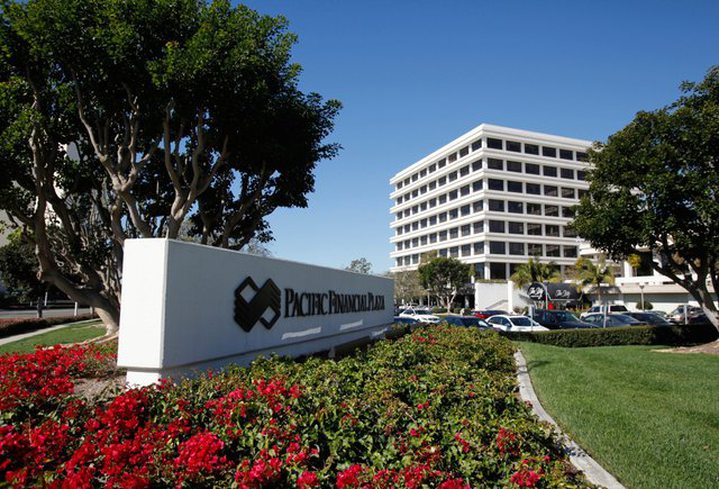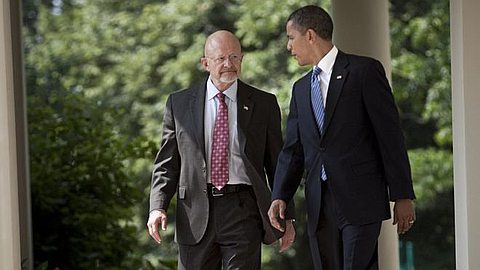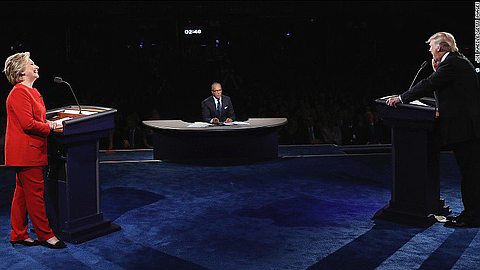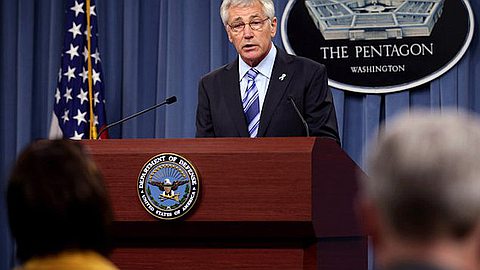Pimco Is in a Race to Keep Investors After Bill Gross Exits

The headquarters of PIMCO, in Newport Beach, California.
Pimco executives, among them Chief Executive Douglas Hodge and the firm's new portfolio-management team, hosted a string of calls with financial advisers at Wall Street firms, including Merrill Lynch and Morgan Stanley, to explain why the firm will thrive despite Mr. Gross's exit, according to people familiar with the matter.
"We're energized, we're prepared and we're strong," Mr. Hodge said to a group of Morgan Stanley financial advisers Monday afternoon on a teleconference, according to a person familiar with the matter.
In Miami, Pimco Executive Vice President Joseph Deane had been previously invited to talk to a gathering of about 300 Morgan Stanley advisers about fixed-income markets. Instead, after a question from a financial adviser about how Pimco was handling Mr. Gross's departure, he made the case that they should remain loyal to the firm because Pimco has smarter employees than those at rivals, according to a person in attendance.
A spokesman for Pimco declined to comment.
Billions of dollars are at stake as Pimco fights to maintain its position as the largest bond manager in the world. If rivals can persuade clients to flee, the bond world would be reordered, Pimco would see its star dim and new powers would emerge as billions of dollars of assets are reallocated.
The Securities and Exchange Commission, the Financial Industry Regulatory Authority and other regulators also are talking to Pimco executives and other mutual-fund managers, hedge funds and exchanges about how Mr. Gross's exit might cause instability in financial markets, particularly if investors pull large amounts of money from Pimco's funds, according to people familiar with the matter. A Finra spokeswoman said the regulator is "always concerned when there is the potential for a marketwide issue" and that it is monitoring how the market might be affected. A representative for the SEC declined to comment.
Over the weekend, large asset-management firms sent a barrage of emails to financial advisers touting their own products, citing the turmoil at Pimco as among the reasons investors should move their money, according to people who have seen the appeals. On Friday and Monday, some asset managers including J.P. Morgan Chase & Co. and TCW Group Inc. said they began seeing new investments from Pimco clients, including large institutions, according to these people.
Consultants to pension funds and advisers asked Pimco's rivals if they could handle large amounts of money taken out of Pimco, according to some of those involved in the talks.
Some clients are still deciding what to do. Morgan Stanley's financial advisers have withdrawn less than 20% of their clients' money from Pimco funds, said a person familiar with the firm and its plans. A decision on whether to stop sending the funds new money will be made "within days," this person said.
Meanwhile, some hedge funds are trying to profit by shorting, or wagering against, some of the largest holdings in Pimco's Total Return fund, the $222 billion mutual bond fund that was run by Mr. Gross. The traders could profit if clients continue to withdraw money from Total Return or from other Pimco funds, forcing the firm to sell these investments to raise cash to hand back to the clients. The hedge funds also could score gains if the new managers of the Total Return fund have a view that is different from Mr. Gross's and decide to change the fund's holdings by selling some of Mr. Gross's favorite assets.
On Monday, The Wall Street Journal reported that Pimco suffered roughly $10 billion of withdrawals following Mr. Gross's departure. The Newport Beach, Calif.-based firm, which is a unit of German insurer Allianz SE, oversees about $2 trillion.
"Investors are eyeing Pimco's closed-end funds, others are looking through other filings, looking for any outsize positions" that could weaken if investors flee from Pimco and the firm has to sell holdings, said Sam Diedrich, a portfolio manager at Pacific Alternative Asset Management Co., which invests in hedge funds.
Taking advantage of a weakened investment firm is an age-old strategy on Wall Street. A struggling hedge fund often attracts rivals eager to sell the fund's largest holdings, assuming the fund will sell those positions and drive down their prices if it closes.
This time, traders are focusing on large or illiquid positions held by Mr. Gross, who on Monday started his new job overseeing a $13 million fund for Janus Capital Group Inc.
Pimco has been a seller of credit-default swaps, or derivatives that serve as debt insurance, on countries including China, Mexico and Brazil, according to filings. Selling this insurance was a way for Pimco to bet on bullish developments in those countries. With Mr. Gross having departed, some hedge funds wagered the firm would exit from those positions.
Other hedge funds are shorting closed-end mutual funds managed by Pimco. The Pimco Corporate & Income Opportunity Fund and the Pimco High Income Fund each fell about 4.5% yesterday after falling on Friday.
Citigroup sent a note to its clients saying its "main concern" is that Mr. Gross's departure "could cause outflows and result in forced selling," though the overall market likely won't be affected.
While municipal bonds represent a small portion of Pimco's holdings, according to Citigroup, some of the firm's holdings "are large enough to cause substantial market volatility if sold over a short period of time," the analysts said, pointing to holdings in a key index that tracks credit-default swaps, bonds issued under the Build America Bonds program and those sold under the Tobacco Master Settlement Agreement.
"In our view, investors should be fading," or selling, "any potential move in most affected assets," Mikhail Foux of Citigroup wrote in the report. "Pimco's closed end funds" and the municipal-bond index "could be vulnerable to more downside."
Some investors are trying to take advantage of Pimco's weakness by buying, not selling, Pimco's holdings. Rajiv Sobti, founder of $1 billion New York hedge fund Karya Capital Management LP, is buying high-rated corporate bonds from Italy and Spain that are similar to those Mr. Gross's fund held and have met weakness since Mr. Gross's departure.
"If [client withdrawals] continue to be $10 billion every day, that's an issue," said Mr. Sobti. He said additional redemptions would mean more potential weakness for those corporate bonds. He said the new managers of the Pimco fund, however, may be just as enamored of those Italian and Spanish bonds as Mr. Gross was, as may funds receiving money from clients fleeing Pimco, suggesting the weakness in the bonds may be short-lived.
"I don't expect this to be a long-lasting situation," Mr. Sobti said.





